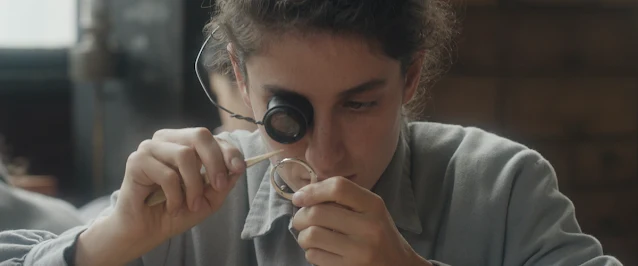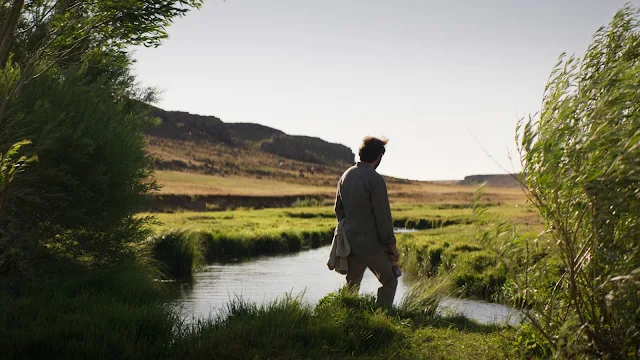 |
| Ali Junejo in Joyland |
Cast: Ali Junejo, Rasti Farooq, Alina Khan, Sarwat Gilani, Salmaan Peerzada, Sohail Sameer, Sania Saeed, Ramiz Law. Screenplay: Saim Sadiq, Maggie Briggs. Cinematography: Joe Saade. Film editing: Saim Sadiq, Jasmin Tenucci. Music: Abdullah Siddiqui.
Haider (Ali Junejo) is a milquetoast, serving as factotum to everyone in the large household in Lahore, including his father (Salmaan Peerzada), his older brother, Saleem (Sohail Sameer), his sister-in-law, Nucchi (Sarwat Gilani), and their daughters. While his wife, Mumtaz (Rasti Farooq), works, he stays home, unable to find a job. When we first see Haider he is being pressed into service to take Nucchi to the hospital on his motorbike because she is about to give birth to another daughter. And then things change: Haider finds a job, and it's Mumtaz's turn to stay home -- though she really doesn't want to -- and cater to the family's needs. And so begins Saim Sadiq's prize-winning debut feature, a comic story that turns tragic in its course. Haider's chief problem is with the job he has found: backup dancer to a performer in a musical revue. Her name is Biba (Alina Khan), and she's transgender. At first, Haider tells the family that he's a stage manager, but the truth emerges. Everyone realizes that there's not much they can do about it as long as he's bringing in money, so he's allowed to continue. Haider is no dancer, but under Biba's tutelage he gets by, and soon he becomes a favorite of hers. There the complications really begin. Joyland reminded me of the Italian comedies of the 1960s by directors like Pietro Germi and Mario Monicelli that centered on a traditional society's conflict with contemporary ways of looking at the world. Sadiq's Pakistan is like their Sicily, but Joyland turns serious in ways that those films don't. It's a film that maybe doesn't quite set up its turn from comic to serious well enough, but the splendid performances make up for its flaws.

.jpg)











